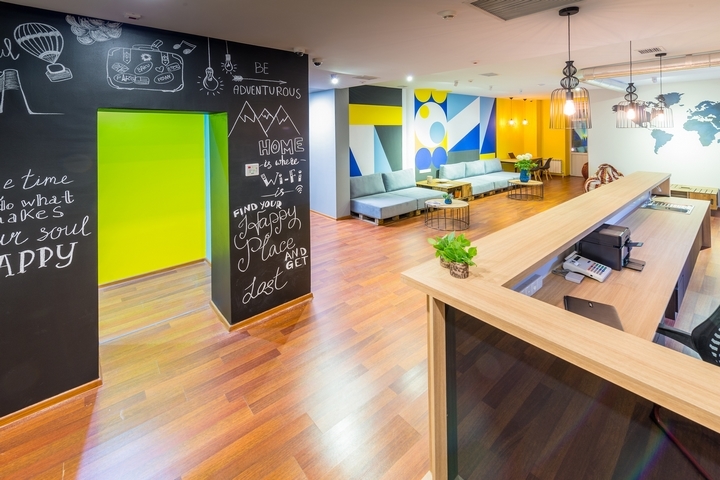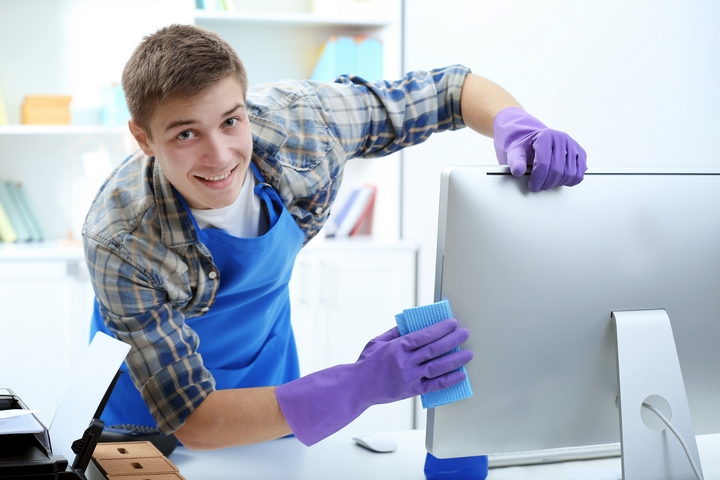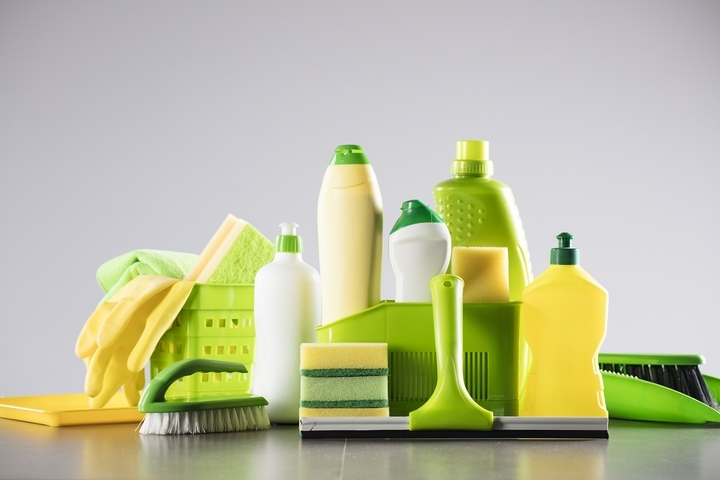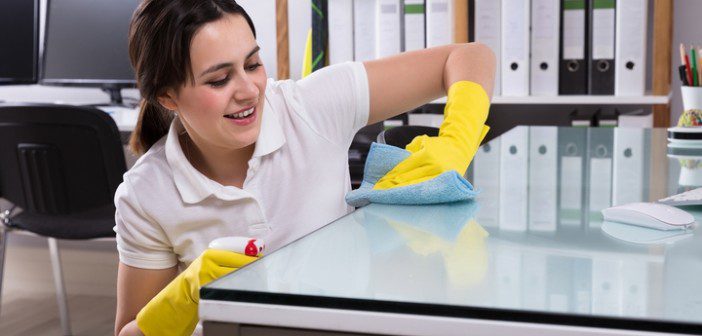Whether or not your clients regularly visit your office space, you want to keep it clean and tidy. Working in a messy, smelly, dusty office is nothing enjoyable or motivating.
The problem is that many employees just won’t clean up after themselves. They’re too busy, don’t feel like it, or simply don’t see why they should try tidying up their desk and wiping the kitchen table after using it.
And yet, keeping the entire office clean would be much easier if everyone happily did their part.
Learn how to motivate employees to clean up after themselves with these seven simple tips.
Define your cleanliness expectations

Telling your employees to clean up after themselves is not exactly a clear directive. If you want them to do something, you must clarify your expectations.
Define what it means for you to keep their desk and the office’s common areas clean. Write down what you want them to do, and don’t hesitate to add detailed instructions. You could create signs displaying your cleanliness expectations and add them to your employee manual.
When your employees know what it means to clean up after themselves, it will be easier for them to do it.
Hire office cleaning services

Hiring office cleaning services is a good way to motivate employees to do their part to keep the office clean.
Suppose a professional cleaning crew visits your office regularly, whether once a week or twice a month. In that case, you can ask them to take care of the biggest jobs, such as, for example, thoroughly cleaning the bathroom, the floors and the windows.
Then, your employees will notice the cleanliness of the office and understand that all they need to do is keep their desks clean and avoid leaving dirty dishes in the sink.
On the other hand, if professionals never clean your office, your employees will not feel guilty about making any effort to clean up after themselves.
Explain why cleanliness matters to the company

To motivate your employees to clean up after themselves, it’s also a good idea to explain to them why it’s important. They might not realize that their lack of tidiness can affect their coworkers and paint a negative picture of the company.
The solution is to gently make them understand how cleaning up after themselves and keeping the office tidy will make everyone more productive and more likely to be happy to come to work.
You should also remind them that the way the office looks and smells will influence the way the company is perceived.
Lead by example by cleaning up after yourself

If your desk is messy, you can’t realistically expect your employees to clean up after themselves. If you want things to improve, you need to lead by example.
The best way to show your employees what you want them to do to help keep the office clean is to do it yourself.
Keep your desk clean and well-organized. Avoid eating before your computer and allowing food crumbs to fall on your keyboard. Clean your dishes after eating in the break room, and immediately wipe anything you spill on the floor or a countertop.
Make sure plenty of cleaning supplies are available

This tip is pretty straightforward: if you want to motivate your employees to clean up after themselves, be sure they have access to cleaning supplies.
Assemble all your supplies to keep an office clean and ensure everyone knows where they are.
And, of course, as soon as a bottle of all-purpose cleaner or a roll of paper towels is empty, get a new one.
Offer rewards and incentives

Instead of stating there will be consequences for employees who don’t clean up after themselves, offer rewards and incentives for those who do. This is a more positive way to motivate your team.
You could even make the whole thing fun by offering your most competitive employees the chance to win a monthly prize if they keep their desks clean day after day.
Make it a part of their job requirements

Finally, if nothing else works, make cleanliness a job requirement. Make your employees understand that you expect them to clean up after themselves and that this should be as important to them as coming to work on time and respecting deadlines.
Make it clear that any employee who keeps their desk messy and leaves dirty dishes in the kitchen will not be getting a raise or a promotion anytime soon. This should motivate everyone to make cleanliness one of their priorities.




